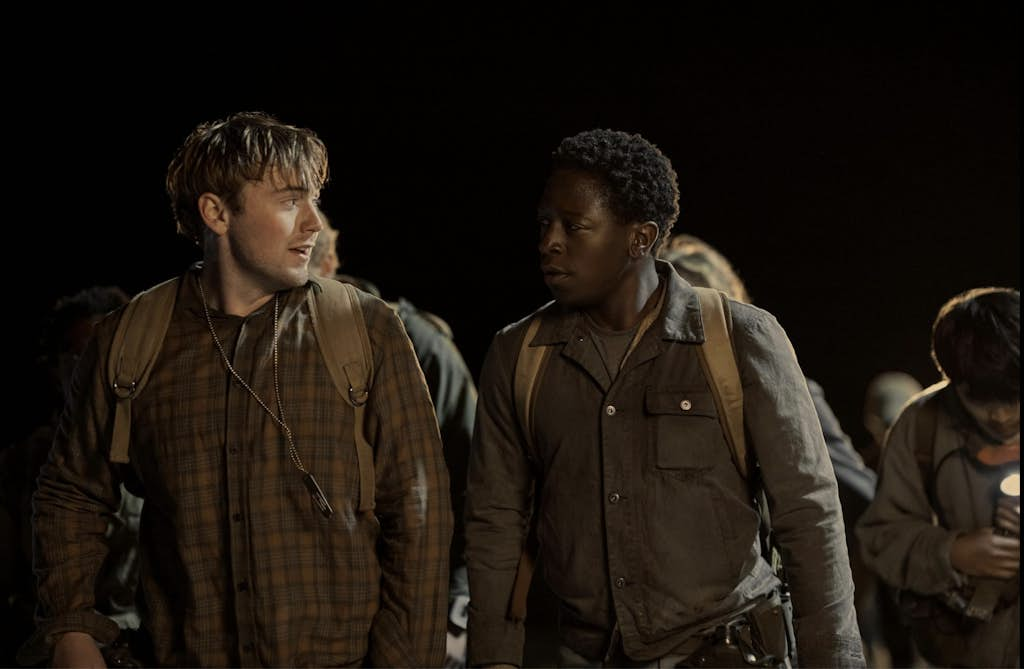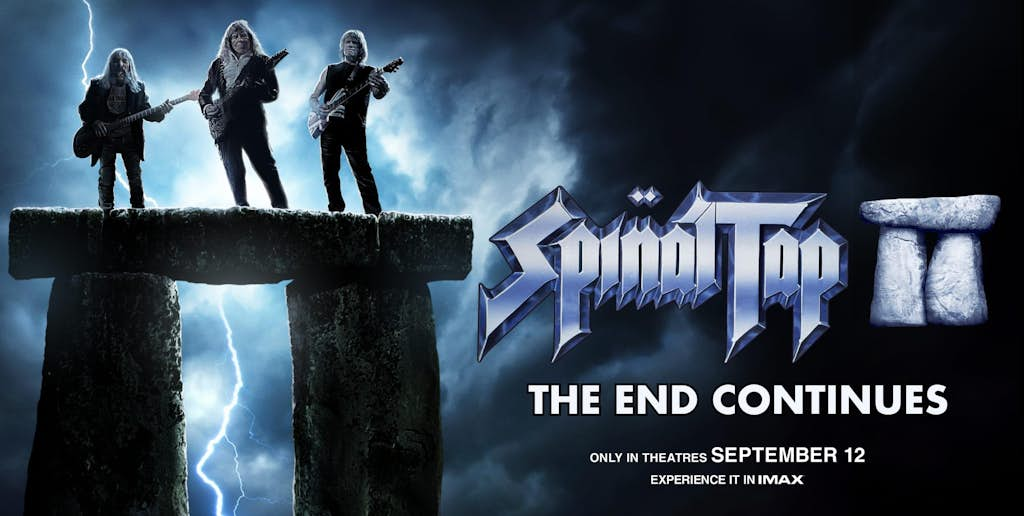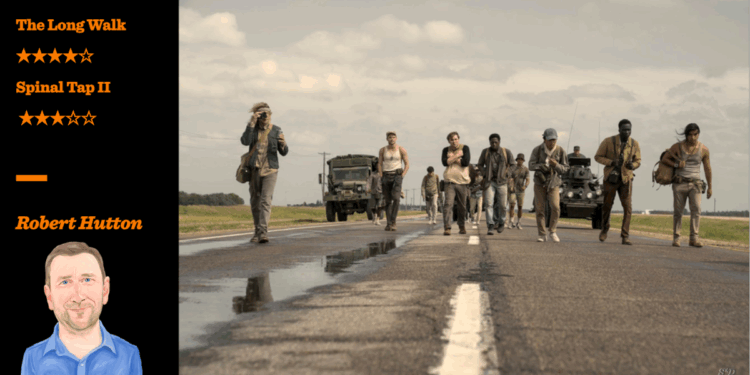The Long Walk ★★★★☆ / Spinal Tap II ★★★☆☆
For fans of movie connections, this autumn’s cinema releases offer an intriguing chain. Spinal Tap II (of which more below) opens with the logo of Castle Rock Entertainment, the production company set up by the film’s director Rob Reiner. During the 1990s, that logo graced the titles of terrific films including When Harry Met Sally and A Few Good Men. Simply to see it is to be reminded of a time when Hollywood made great two-hour stories that stood on their own.
Reiner took the name Castle Rock from the fictional town in his film Stand By Me, which was based on a Stephen King novella. Although King is known as a horror novelist, even people who would never watch Carrie or The Shining are likely to list one of his films among their favourites, probably another Castle Rock production, The Shawshank Redemption.
One of his books is The Running Man, which is getting a new film version in November. King published it under the pseudonym Richard Bachman, which he also used for The Long Walk, published in 1979 and hitting screens this month. Like Stand By Me, it is about teenagers going on a journey. But where Stand By Me spoke to the nostalgic, optimistic Reagan era, The Long Walk is a film for a Trumpian time of delight in random public cruelty.

Set in an America that might be the future or the past, the film sees 50 young men competing for a huge cash prize — and the granting of any wish — by walking along a straight road at three miles an hour until only one of them is left. The catch is that those that fall out of line are killed on the spot.
The first thought you have in the audience is that they can’t really mean this. As one of the characters says, it doesn’t seem like something anyone would actually do, even in fiction. Which is why it is so important that director Francis Lawrence makes the decision to show us a teenager getting shot in the head. My taste for gratuitous violence has diminished over the years, especially towards characters the age of my own sons, but we need to see this for the film to work. The audience must believe that there will be no escape for these boys.
It’s strange in this context to say that the film is still heartwarming, even sometimes funny, but like Stand By Me this is a film about friendship. Both films are raised above the ordinary by the way they capture male fellowship, the ease with which it can begin, the joshing and banter that keep it going and the heights it can achieve. Lead actors Cooper Hoffman and David Jonsson are both excellent, convincing as desperate young men striking up a bond that they know is bound to end in one of their deaths.
Laurence covered similar ground in the episodes of the Hunger Games films that he directed, but where those felt like fantasy, this feels like it is only the flap of a butterfly’s wing away from reality. I think the final act features a little too much of characters stating the themes out loud, but I’ll forgive it.
Spinal Tap II: The End Continues is a cash-in movie about a band cashing in. It’s said a lot these days that it is impossible to make original comedies like the original 1984 film. Certainly everything about this film involves offering something familiar, lest audiences be scared off by a new concept. In that context it’s worth pointing out that the show is stolen by a completely new character, Chris Addison’s sociopathic music promoter.

I came to the original film too late: by the time I saw it on a rented video in the early 90s, the jokes were all well-known, and I admired it more than I actually enjoyed it. Perhaps because I don’t view the first film as sacred, I had fun with the sequel, and I laughed quite a lot. It’s a slight story that, like the first film, relies heavily on the witlessness and self-importance of its central characters. Now they’re joined by A-list stars including Paul McCartney and Elton John, who have fun sending themselves up. And like the first film, it is really another story of friendship, even love, now in old age.











